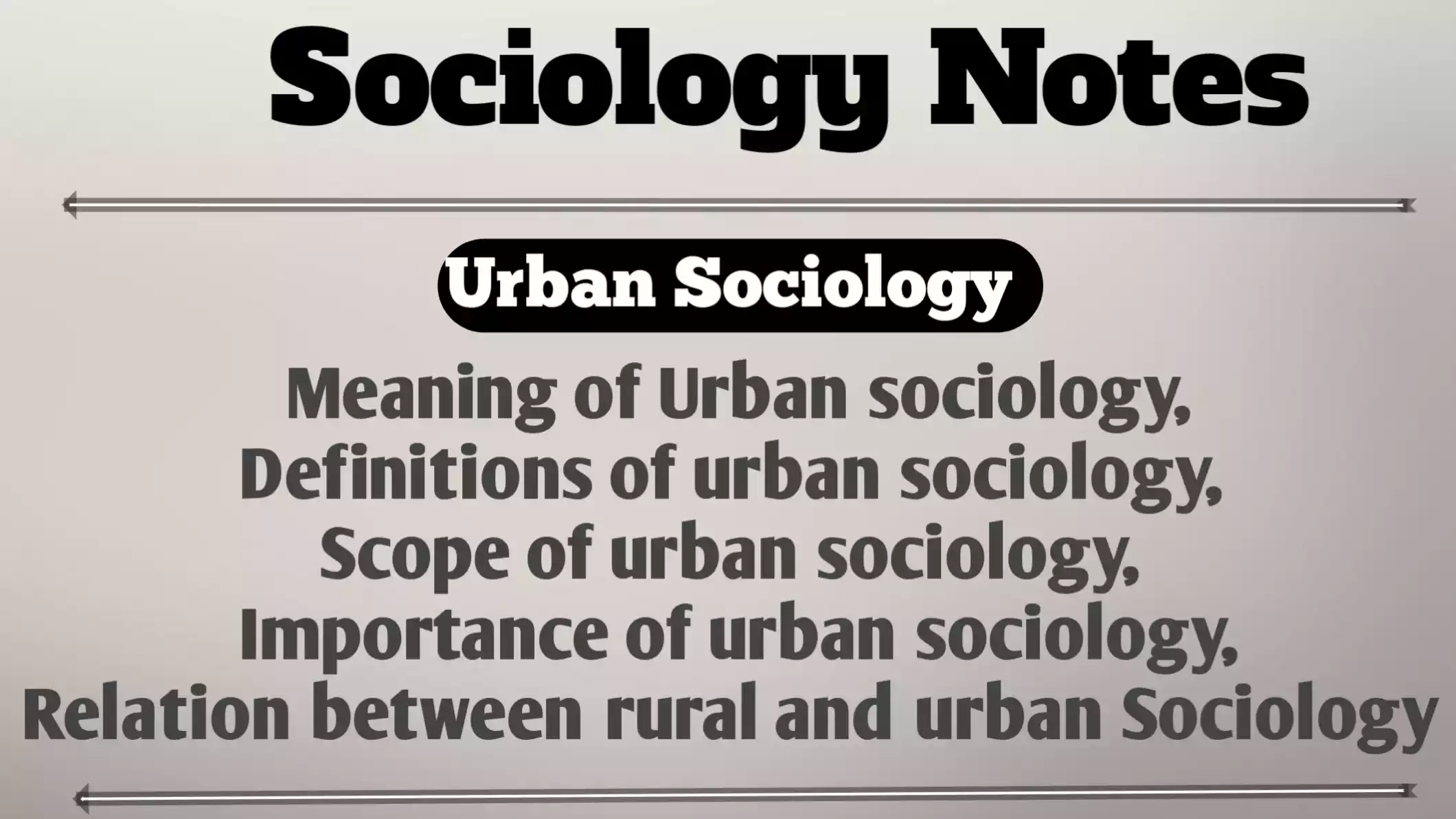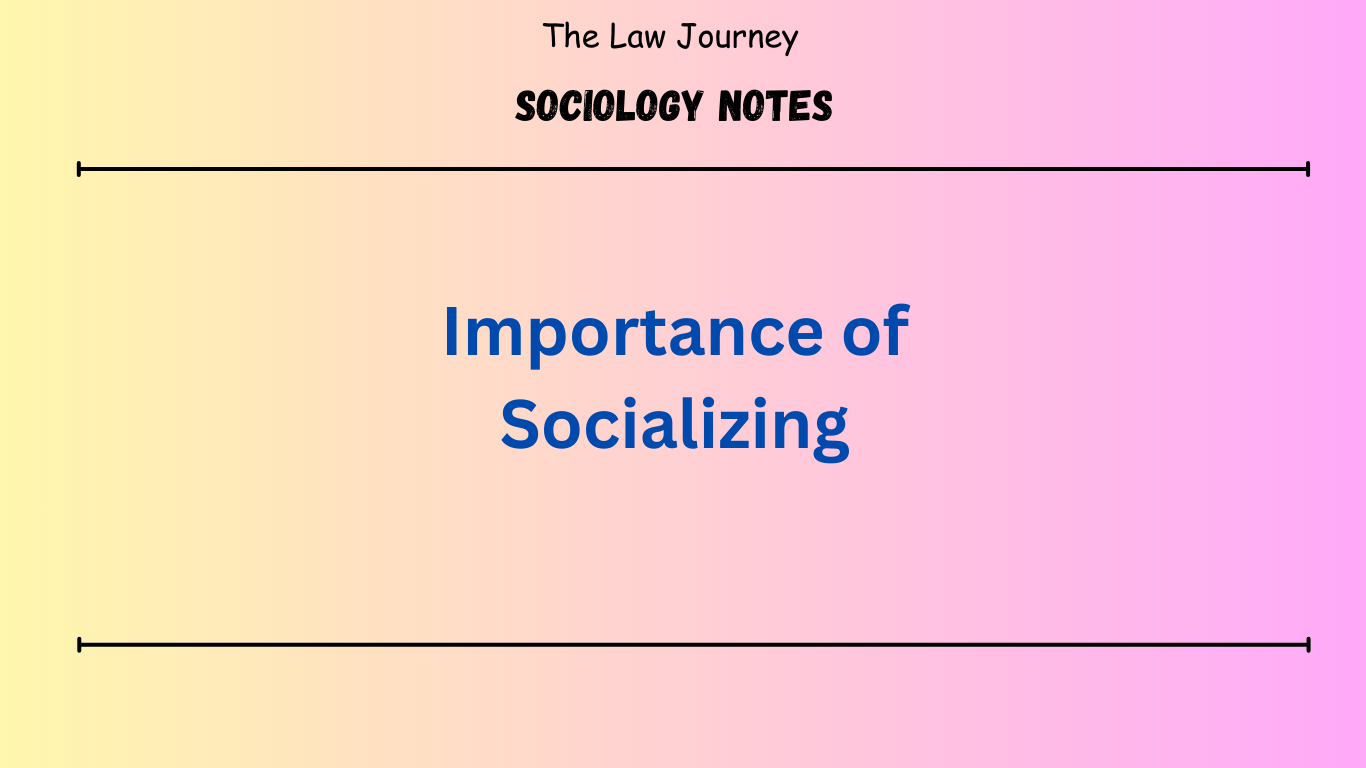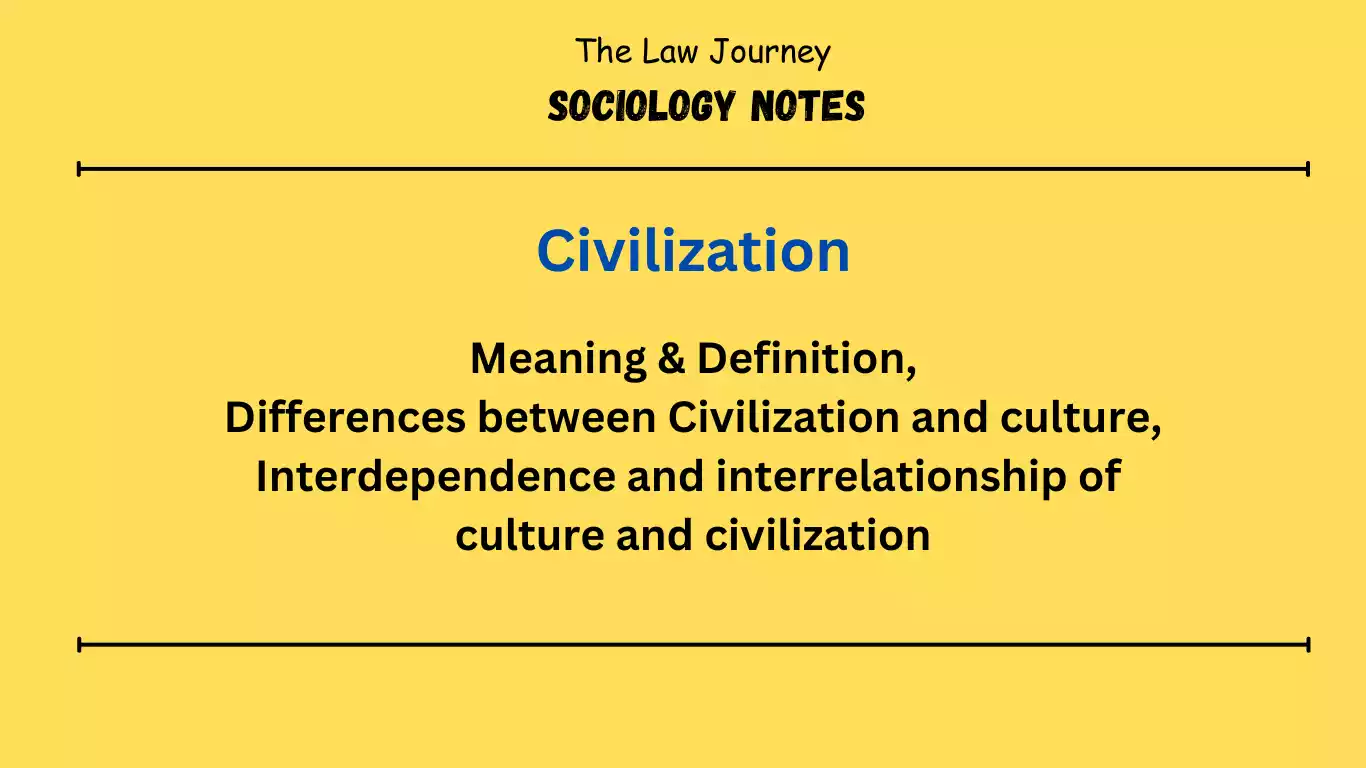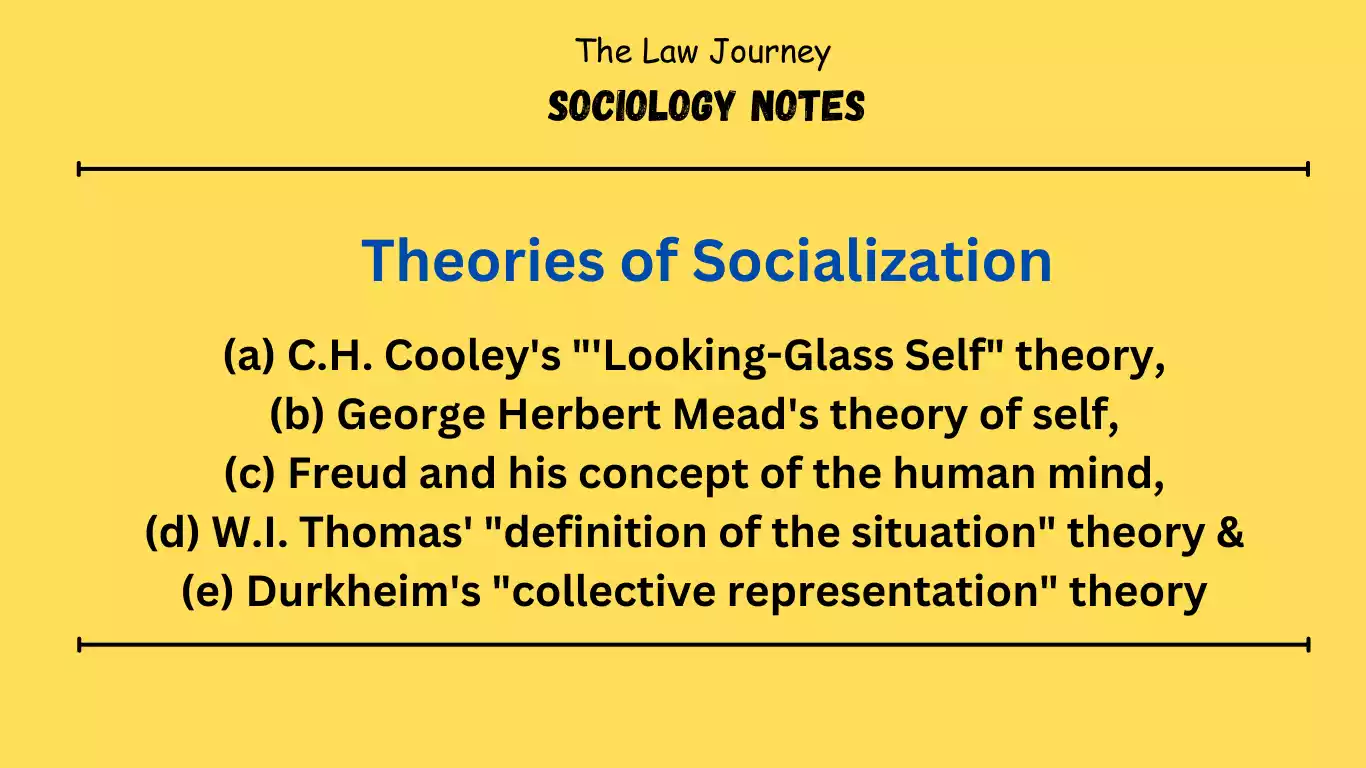Urban Sociology – Our modern industrial civilization is dominated by cities. “Urbanization” or urban growth is a recent phenomenon. This is “a very recent phenomenon in human history, so recent that its rapid growth and full potential have yet to be fully understood and realized.” Not only are existing cities in the world growing, but new cities are emerging as well. Urban sociology was born to study cities and their unprecedented growth.
Definition of Urban Sociology
- “Urban sociology” is the branch of sociology concerned with cities or urban communities, urbanization and urbanism. Starod W-J.A. Quinn
- Urban sociology is the sociology of urban life and urban activities.
Urbanization and Urban Sociology
Cities were not a phenomenon confined to civilized life, they already existed in some already established cultures. However, the first small urban centers appeared around 5,000 to 6,000 years ago. But real urbanization is younger. Early urban centers such as Memphis, Thebes, Babylon, Athens, Rome, Carthage, Pataliputra and Uzian were of course called “cities”. But in the modern context they are called “cities”. “They were mere city islands in a vast sea of countryside.”
“Urbanization” means the development of a city. It also shows that the urban center population is growing significantly. “Urbanization involves the permanent or temporary movement of people from villages to cities. It refers to the effect of urban customs on village customs…”
It was not until his nineteenth century that urbanization became a global phenomenon. In 1800, there were only 21 cities in the world with at least 100,000 inhabitants each. They were all in Europe. By 1950 the number had increased to 858 and the total population he exceeded 313 million. The population of the large cities ranged from 1 million to about 12 million. New York, Tokyo and Shanghai already have over one million people. Some countries have become more urbanized than others.
The US, UK, Germany and Israel have become the most urbanized countries in the world. More than 50 percent of the population in these countries now lives in cities. We understand this increase in urban proportions as ‘urbanization’.
The importance of cities is now widely recognized. However, cities are often studied using a “moral” rather than a “scientific” approach. Some emphasize the importance of cities in the past and present and their dominant role in building civilizations. They argued that cities were leaders in creating art, promoting science, and disseminating knowledge. they also explained it
Without megacities, modern complex industrial civilizations would not have developed. On the contrary, some scholars condemn cities as “extraordinary nurseries of sin, skepticism, greed, misery, filth, and congestion.” These cities are branded as centers of “corruption, vice and misery”. They further argued that the “urban way of life inevitably fosters attitudes of selfish pleasure-seeking, exploitation of one’s fellowmen, and indifference to human suffering.”
Whether criticized or praised, these scholars tacitly paid great respect to the ‘human importance of the city’. We are seeing more distant landscapes, but academic research and literature on the city is lacking.
Origin of urban sociology
The tremendous growth of cities, or what we call the ‘urbanization phenomenon’, with all its advantages and disadvantages, has demanded a systematic and scientific study of urban urban communities. Thus, a branch of sociology called “urban sociology” was born. Cities have been studied before, but urban sociology as a systematic discipline only emerged in the 20th century.
As in rural sociology, most of the research in the field of urban sociology today takes place within the urban sociology discipline. For example, many books have been published on urban classification, citizenship, urban development, urban environment, urban social turmoil, demographics, community life and its effects on urban character, family, marriage, and divorce. ing. Intensive research is also being conducted on social welfare systems, leisure in cities, religion, culture, appropriate use of educational facilities, and urban planning and reconstruction.
Scope of Urban Sociology
The scope of urban sociology is really wide. In addition to studying the general principles of urban sociology, it studies urban development, social turmoil, issues of urban life, and urban planning. Investigate the interaction between the urban environment and human personality development. It examines the structure and function of urban families, their roles, and changing patterns.
It deals with the institution of marriage in cities and its recent trends. It examines class structures and class struggles in urban society. It focuses on characteristics of social disorder such as crime, juvenile delinquency, prostitution, begging, unemployment, disease, pollution, slums, gambling, alcoholism, and nightlife. Analyze the factors and causes of social and personal disruption.
It examines industry and labor-management relations, the causes of disharmony between labor and management, and the ways and means of bringing about harmony between labor and management.
In its research, urban sociology begins with the basic assumption that cities are not static phenomena, but rather a series of dynamic interrelationships. “In the ever-changing modern city, institutions also change. New problems emerge as old problems change or disappear.” New methods for solving these problems are also continuously tested in urban sociology.
There are suggestions for urban planning and control. Therefore, rather than just examining the facts of city life, we evaluate them to understand their causes and opportunities for improvement. The immediate task of urban sociology is to analytically study the structure and functioning of urban communities, and in doing so, provide suggestions for addressing issues of urban life of great practical importance.
Importance of urban sociology
The value of urban sociology is now widely recognized. Industrialization and technological innovation have significantly accelerated the process of urbanization in developed countries. Today’s cities “embrace almost all of life in one way or another.”
There was also a wide variety of research on urban society and urban life. They may be interested in “urban transportation and housing, local government and finance, fire safety and park maintenance, juvenile delinquency and commercialized vices.” Urban sociology seeks to find ways to resolve the difficulties, annoyances, dangers and neglect of urban life.
Urbanization is changing the tendencies and tendencies of individuals. The norms and standards of marriage and family have changed significantly. It causes various social, economic and health problems. In this context, the need for urban sociology is particularly salient. Urban sociologists are social doctors who deal with a wide range of diagnosis of social diseases. “It is natural and necessary to highlight the problem, since the crowding of thousands or millions of people in a confined space is a condition widely regarded as necessarily unfortunate.
Some of these disorders are so new that no traditional treatments exist. treatment. These can only be managed through research and the invention of new institutional arrangements. The value of urban sociology under these circumstances cannot be overestimated.
Relationship between rural sociology and urban sociology
Different fields of sociology study different aspects of the same reality: society. Needless to say, all branches are interconnected. Therefore, there is also a connection between rural and urban sociology.
Rural sociology studies villages, urban sociology studies cities.
Urban life depends on the village and its products. Villages are also strongly influenced by cities. People are flocking from villages to cities, driven by internal pressures and external gravitational pulls. While economic necessity and social deprivation push” people out of villages, the attractions of citiespull” people toward the centre.
This gave rise to a phenomenon known as “urbanization.” Both rural and urban sociology are interested in studying this phenomenon.
Rural sociology and urban sociology complement each other. Rural sociology uses urban Useful for sociology. loss” etc. Similarly, in the case of rural sociology, urban sociology focuses on issues such as the limits of rural life, the impact of cities on villages, the “flooding” of people into cities, rural change, rural problems, rural development, rural reconstruction, etc. useful for researching.
Rural sociology and urban sociology are closely related and cannot be separated. Just as it is difficult to draw a line between urban and rural societies, it is equally difficult to draw a clear distinction between urban and rural sociology. Urban trends are also found in rural societies, and rural trends often persist in urban societies.
As with suburban centers, small towns and communities also exhibit a blend of rural and urban trends and characteristics, often described by the phrase “rural-urban fusion.” A rural sociologist must not only have an understanding of the city, but also a basic understanding of urban sociology
A sociologist must know the basic principles of rural sociology. There is no city in the world that does not have a rural background, and similarly almost every village is influenced by the city in some way. This fact further emphasizes the interrelationship between urban and rural sociology.
Related Post | Urban Sociology
- Legal History Notes
- Concept of Social Groups in Sociology
- RTI notes
- law project maker
- Political Notes
- Law of Torts notes
- moot court memorial maker
Definition of Urban Sociology ?
“Urban sociology” is the branch of sociology concerned with cities or urban communities, urbanization and urbanism. Starod W-J.A. Quinn
Urbanizatio means ?
Urbanization means the development of a city. It also shows that the urban center population is growing significantly. “Urbanization involves the permanent or temporary movement of people from villages to cities. It refers to the effect of urban customs on village customs…”
Scope of Urban Sociology ?
The value of urban sociology is now widely recognized. Industrialization and technological innovation have significantly accelerated the process of urbanization in developed countries. Today’s cities “embrace almost all of life in one way or another.” ………
Relationship between rural sociology and urban sociology ?
Different fields of sociology study different aspects of the same reality: society. Needless to say, all branches are interconnected. Therefore, there is also a connection between rural and urban sociology.
Rural sociology studies villages, urban sociology studies cities…..
Reference Books | Urban Sociology
- C.N. Shankar Rao – Principle of sociology with an introduction to social thoughts
- Social Change in Modern India by M N Srinivas
- Introduction to Sociology by Anthony Giddens
- A Dictionary of Sociology by John Scott
- Sociological Theory by George Ritzer
- Handbook of Indian Sociology by Veena Das

















